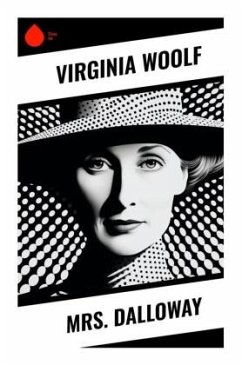
The Waves
Versandkostenfrei!
Versandfertig in 6-10 Tagen
9,60 €
inkl. MwSt.

PAYBACK Punkte
0 °P sammeln!
Virginia Woolf's "The Waves" presents a groundbreaking exploration of individual consciousness through the interwoven soliloquies of six characters: Bernard, Susan, Rhonda, Neville, Jinny, and Louis. This novel eschews traditional narrative forms, opting instead for a lyrical prose that mimics the ebb and flow of the titular waves, embodying the characters' internal thoughts and emotions. Woolf masterfully employs stream-of-consciousness techniques, allowing readers to delve deeply into the shifting psyches of her characters, exploring themes of identity, time, and the nature of reality itself...
Virginia Woolf's "The Waves" presents a groundbreaking exploration of individual consciousness through the interwoven soliloquies of six characters: Bernard, Susan, Rhonda, Neville, Jinny, and Louis. This novel eschews traditional narrative forms, opting instead for a lyrical prose that mimics the ebb and flow of the titular waves, embodying the characters' internal thoughts and emotions. Woolf masterfully employs stream-of-consciousness techniques, allowing readers to delve deeply into the shifting psyches of her characters, exploring themes of identity, time, and the nature of reality itself amidst the backdrop of early 20th-century modernism. Virginia Woolf, a pivotal figure in modernist literature, drew inspiration from her own experiences with mental health and her observations of early feminist movements. Her literary career was marked by a deep engagement with the intricacies of human emotion and the social constraints placed upon women. "The Waves," published in 1931, reflects her innovative spirit and her desire to transcend conventional storytelling, challenging readers to interrogate the fragmentation of self in a rapidly changing world. This essential work is a compelling read for those interested in the evolution of narrative form and the intricacies of personal consciousness. Woolf's poetic language and profound insights into the human condition invite readers to immerse themselves in a rich tapestry of thought and emotion, making "The Waves" a significant contribution to modernist literature worthy of study and reflection.












